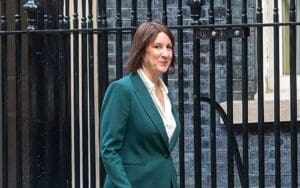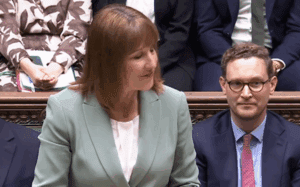The UK economy shrank more sharply than expected in April, with month-on-month gross domestic product (GDP) falling by 0.3 per cent, according to official figures released by the Office for National Statistics (ONS) on Wednesday.
City economists had forecast a milder contraction of just 0.1 per cent, following a stronger-than-expected first quarter that had raised hopes of a sustained recovery. However, the latest figures signal a loss of momentum in the early months of the second quarter.
Liz McKeown, director of economic statistics at the ONS, said: “The economy contracted in April, with services and manufacturing both falling. However, over the last three months as a whole, GDP still grew, with signs that some activity may have been brought forward from April to earlier in the year.”
The downturn follows a period of artificially boosted growth, driven in part by an early-year surge in exports to the United States as UK firms raced to beat new trade tariffs imposed by the Trump administration on April 2, dubbed “Liberation Day”. That short-term uptick now appears to have masked underlying weaknesses in key sectors.
Services, which make up around 80 per cent of the UK economy, saw a notable dip in April, while the manufacturing sector also registered a fall. The broader construction sector, which had shown some signs of recovery, posted a marginal decline as well, amid ongoing cost pressures and subdued demand.
The data adds to mounting concerns over the UK’s economic outlook. Inflation remains above the Bank of England’s 2 per cent target, interest rates are still elevated, and unemployment has recently edged up to a four-year high of 4.6 per cent.
April’s negative print comes just days ahead of Chancellor Rachel Reeves’s Spending Review, where questions will intensify over how the government plans to balance its ambitious investment plans with a softening growth outlook.
Economists say the Bank of England will now be under even greater pressure to assess whether further interest rate cuts are warranted this summer. Some analysts believe the data increases the likelihood of a rate reduction as early as August.
The Bank’s monetary policy committee has signalled that wage growth and labour market resilience remain key data points in guiding its decisions. However, with wage growth slowing and economic activity softening, expectations for a more dovish stance are building.
Despite April’s contraction, GDP still rose 0.7 per cent in the first quarter of the year — its strongest performance in over a year. But the sharp deceleration in April suggests that headwinds from higher borrowing costs, geopolitical uncertainty, and weaker global trade may continue to weigh on activity throughout the summer.
A further update on GDP performance for the May-July period will be critical in determining whether the UK can maintain modest growth or risks slipping into another period of stagnation.
Read more:
UK economy contracts 0.3% in april as growth momentum stalls










